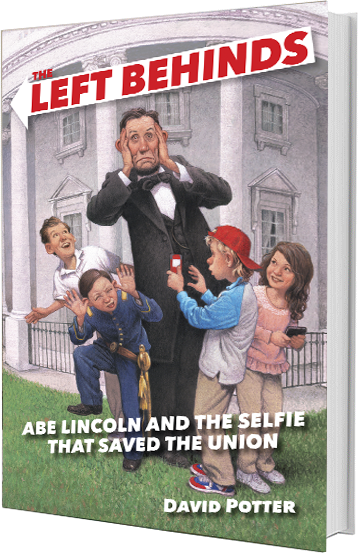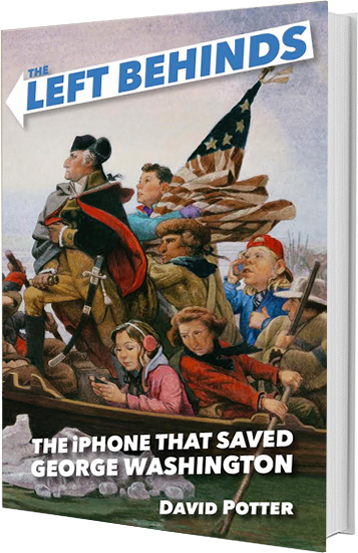If you want to understand America, I suggest a good place to start is Western Pennsylvania.
In 1794.
One thing will become “perfectly clear,” to quote former president Richard Nixon: folks really don’t like to pay taxes. This isn’t a big newsflash, of course, but it’s not just today’s Tea Partiers or the original Boston Tea Partiers of 1773 who don’t like to pay taxes: it’s pretty much everyone, everywhere, since humankind began organizing themselves – or were organized into – political structures.
Pharaoh, Emperor, King, Parliament, Congress: all need gold , or bushels of wheat, or the coin of the realm, in order to operate. And one way or another, they find ways to get it.
There are references to taxation in the Bible: “But when the crop comes in, give a fifth of it to Pharaoh. The other four-fifths you may keep as seed for the fields and as food for yourselves and your households and your children.” (Genesis 47, v.24). That would be a 20% tax, by the way.
The Persians taxed. The Indians and the Chinese taxed. The Romans and the Ottomans taxed. And wherever there was taxation, there was also resistance, cheating, skimming, hiding, protesting, and sometimes rebellion.
Like I said, folks really don’t like to be taxed. Nobody wants to pay a penny more than they have to; entire professions are devoted to helping us find clever ways to stiff the taxman as much as we dare. But in the end – we pay what we must.
Modern types of taxation began in England in the early 17th century. Prior to this the English kingdom financed itself primarily by taxing landed estates and foreign imports; the wealthy, in other words, paid the taxes, and in return were given great power and status. But in 1643, during the English Civil War, Parliament decided more was needed to finance the army, and the first “excise” taxes were imposed – and imposed upon “regular” people, as it were, not merely upon the wealthy. There was a tax on beer, ale, and cider, and then extended to salt, beef, rabbits, and pigeons.
It didn’t go over well.
Riots forced Parliament in 1647 to exempt beer for the poor, and to repeal the tax on beef and salt. Resistance was greater the further from London, and the cost of collecting the tax sometimes exceeded the tax itself. You would not want to be a Royal Tax Collector in Scotland, for example. You might face the wrath of The People far, far from any help from London.
Imposing a variety of excise taxes upon the good people of the American colonies did not go over well either. In fact, it led directly to the War of Independence and the creation of the United States of America.
But guess what? In order to exist, and in order to perpetuate itself, this new country had to find ways to raise funds.
It had to tax, in other words. Just like the overturned King George III and Parliament.
President George Washington appointed his former aide-de-camp, Alexander Hamilton, to be the first Secretary of the Treasury. Neither man was going to let this new country wither on the vine and die. They were going to protect it, and nurture it, and allow it to grow from a thin sprout to a mighty oak.
And in Alexander Hamilton, President Washington selected an extraordinarily capable man to handle the country’s finances. Hamilton knew bookkeeping, accounting, finance, taxes, interest, markets, currency exchanges, etc. like no other. He was so gifted at numbers that he took care of the all the books at the import house on the island of St. Croix that was his first employer – at age fourteen. No one could do better, or understood more.
Hamilton devised a plan to finance the government, pay down all debts incurred from the War of Independence, establish a national bank, and put the young country on a firm financial footing that would enable it to maintain itself in they years ahead. Since I am writing this in 2014, and the very same country has had a continued and prosperous existence since its inception, it’s fair to say Hamilton did a pretty good job. Not for nothing is his face on the ten dollar bill.
But one of the things he came up with to finance things in the early going was an excise tax – upon the sale and manufacture of distilled spirits. To Hamilton it made perfect sense. The debts incurred during the war were large; to establish credibility in the international credit markets the debt had to be paid down in a regular, responsible manner; everyone would need to pitch in for the common good. So if you were a distiller of spirits, big or small, you were going to have to contribute to the cause.
The larger distillers in New York and Philadelphia had no problem paying their fair share. Of course, their cooperation with the new government was amply rewarded with lucrative contracts to supply rum to the Navy. Funny how that works out, isn’t it?
But in the wilds of Western Pennsylvania, there was a different reaction.
They didn’t merely squawk, or sign petitions and march around.
Nope. Today’s Tea Partiers and yesterday’s Sons of Liberty, and all the tax resistors from time immemorial, would understand what they did.
They rebelled.
TO BE CONTINUED


